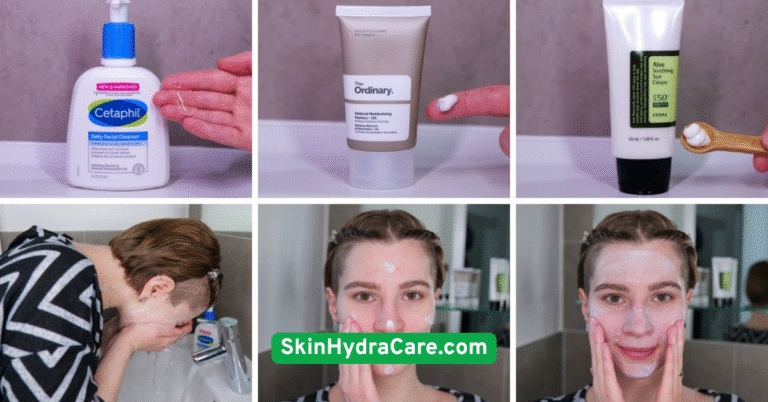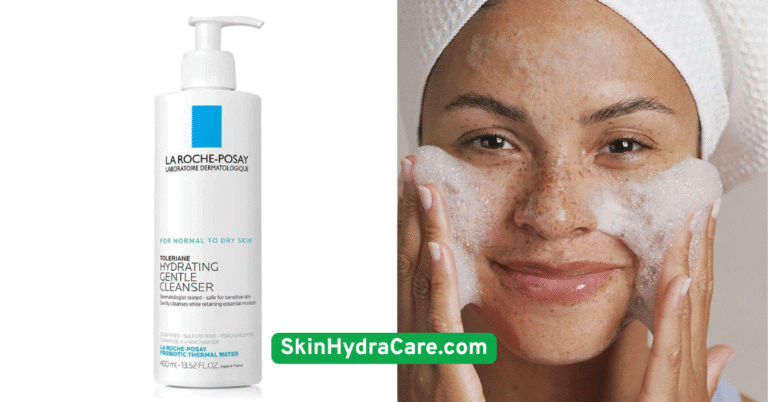10 Barrier-Repairing Skincare Tips for All Seasons in 2025

1. Understand the Skin Barrier and Its Importance
Before diving into products and routines, it’s vital to understand what the skin barrier actually is. Think of it as your skin’s outermost shield—a protective wall made up of lipids, ceramides, and natural oils that keep moisture in and harmful irritants out. When this barrier is intact, your skin feels soft, hydrated, and resilient.However, damage to this barrier can lead to dryness, redness, sensitivity, and premature aging. Common causes include harsh cleansers, over-exfoliation, UV exposure, and environmental stress. Without a strong barrier, your skin becomes vulnerable and reactive.By focusing on barrier repair, you’re investing in your skin’s health long-term. This means fewer flare-ups, less irritation, and a natural glow that lasts. In 2025, skincare isn’t just about looks—it’s about strengthening your skin’s defenses for lasting wellness.

2. Choose Gentle, pH-Balanced Cleansers
Cleansing is the first step in every skincare routine, but not all cleansers are created equal. Harsh soaps or overly foaming cleansers can strip away your skin’s natural oils, disrupting the delicate pH balance and weakening the barrier.To protect your skin, opt for gentle, pH-balanced cleansers that remove dirt and impurities without leaving your skin tight or dry. These products maintain the skin’s natural acidity, which is crucial for barrier function.Look for cleansers labeled “for sensitive skin” or “hydrating,” often containing soothing ingredients like aloe vera or chamomile. Avoid those with sulfates or strong fragrances that may cause irritation. Using lukewarm water instead of hot water also helps prevent barrier damage during cleansing.A well-chosen cleanser sets the stage for effective barrier repair by preserving your skin’s moisture and natural oils.

3. Incorporate Hydrating Ingredients Like Hyaluronic Acid
Hydration is the cornerstone of barrier repair. When your skin is properly hydrated, it stays plump, elastic, and less prone to irritation. Hyaluronic acid (HA) is a superstar ingredient for locking in moisture.HA is a humectant, meaning it attracts water molecules and holds them within the skin. This boosts hydration without feeling heavy or greasy. Incorporating a hyaluronic acid serum or moisturizer can help restore moisture levels and soothe dry, compromised skin.For best results, apply HA on damp skin and follow up with a moisturizer to seal in hydration. This layering technique maximizes moisture retention, keeping your skin barrier healthy and resilient through seasonal changes.Remember, hydrated skin is happy skin—and a hydrated barrier is a strong barrier.

4. Use Barrier-Repairing Moisturizers with Ceramides
Ceramides are natural lipids found in the skin barrier, responsible for locking in moisture and keeping irritants out. When your skin is dry or damaged, ceramide levels can drop, weakening the barrier.Moisturizers formulated with ceramides help replenish these essential lipids, repairing the barrier and improving skin texture. They restore the “mortar” that holds skin cells together, making your skin smoother and more hydrated.Look for products containing ceramide NP, ceramide AP, or ceramide EOP. These ingredients work alongside cholesterol and fatty acids to rebuild the barrier.Regular use of ceramide-rich moisturizers strengthens your skin’s defenses and reduces sensitivity—making them a must-have all year long.

5. Avoid Over-Exfoliating and Harsh Physical Scrubs
Exfoliation removes dead skin cells, promoting a radiant complexion. But too much exfoliation, especially with rough physical scrubs, can strip away your skin’s protective barrier.Over-exfoliating damages the lipid layer, causing redness, dryness, and irritation. If your skin feels tight or shows redness after exfoliation, it’s a sign to scale back.Instead, consider gentle chemical exfoliants like lactic acid or polyhydroxy acids (PHAs), which dissolve dead skin cells without harsh abrasion. Limit exfoliation to 1-2 times per week depending on your skin’s tolerance.Giving your skin time to recover allows the barrier to rebuild, maintaining a healthy, balanced complexion.

6. Protect Your Skin with Broad-Spectrum Sunscreen Daily
Sun damage is one of the top causes of skin barrier breakdown. UV rays penetrate the skin, generating free radicals that degrade lipids and cause inflammation.Applying a broad-spectrum sunscreen daily is essential, regardless of the season or weather. Choose formulas that offer UVA and UVB protection and contain barrier-friendly ingredients like zinc oxide or titanium dioxide.Sunscreens with added antioxidants or moisturizing agents can further support barrier health. Apply generously every morning and reapply throughout the day, especially if you’re outdoors.Consistent sun protection shields your skin from damage and supports the natural repair process.

7. Incorporate Antioxidants to Combat Environmental Stress
Environmental pollutants and UV exposure generate free radicals that damage the skin barrier. Antioxidants neutralize these harmful molecules, protecting your skin from oxidative stress.Top antioxidants in skincare include vitamin C, vitamin E, and niacinamide. Vitamin C brightens the skin while supporting collagen production. Vitamin E hydrates and soothes. Niacinamide strengthens the barrier and reduces redness.Adding antioxidant serums or creams to your routine helps repair damage and boost skin resilience. Apply antioxidants in the morning before sunscreen for optimal protection.This step fortifies your barrier against daily environmental challenges.

8. Use Overnight Treatments to Support Repair and Recovery
Your skin does most of its repair work at night while you sleep. Overnight treatments loaded with barrier-repairing ingredients can accelerate this process.Look for night creams or oils containing ceramides, peptides, and antioxidants. These ingredients nourish and rebuild the lipid layer, improving hydration and elasticity.Avoid heavy products that clog pores but focus on rich, non-comedogenic formulas. Applying these treatments consistently enhances skin texture and barrier function.Nighttime care is an essential opportunity to boost your skin’s natural recovery and wake up to a healthier complexion.

9. Adjust Your Skincare Routine for Seasonal Changes
Each season presents unique challenges for your skin barrier. In winter, cold air and indoor heating sap moisture, causing dryness and flaking. Summer brings heat, sweat, and increased UV exposure.Adjusting your routine accordingly is key. During colder months, switch to richer moisturizers and add hydrating serums. Reduce exfoliation frequency to prevent further dryness.In summer, use lighter moisturizers with SPF and focus on antioxidant protection. Incorporate calming ingredients like aloe vera to soothe heat sensitivity.Transition seasons may require gradual changes to keep your barrier balanced and responsive.

10. Maintain a Healthy Lifestyle to Support Skin Barrier Health
Skincare isn’t just about products—your lifestyle plays a huge role in barrier health. Drinking plenty of water hydrates your skin from within, while a balanced diet rich in omega-3 fatty acids and antioxidants supports barrier repair.Getting enough sleep helps your body regenerate skin cells, and managing stress prevents inflammation that can harm your barrier.Avoiding smoking and excessive alcohol also protects your skin’s integrity. Simple habits like these amplify the effects of your topical skincare and promote lasting barrier strength.Healthy skin is a reflection of a healthy lifestyle.

Conclusion
Caring for your skin barrier is one of the smartest steps you can take for radiant, resilient skin all year round. By understanding your barrier’s needs and adopting these 10 barrier-repairing skincare tips, you’ll protect your skin from dryness, irritation, and environmental damage. Remember, gentle cleansing, deep hydration, sun protection, and lifestyle choices all work together to keep your skin strong.
Consistency is your best friend—nurture your skin daily, and you’ll see the difference. So why wait? Start your barrier repair journey today and enjoy glowing, healthy skin through every season!





